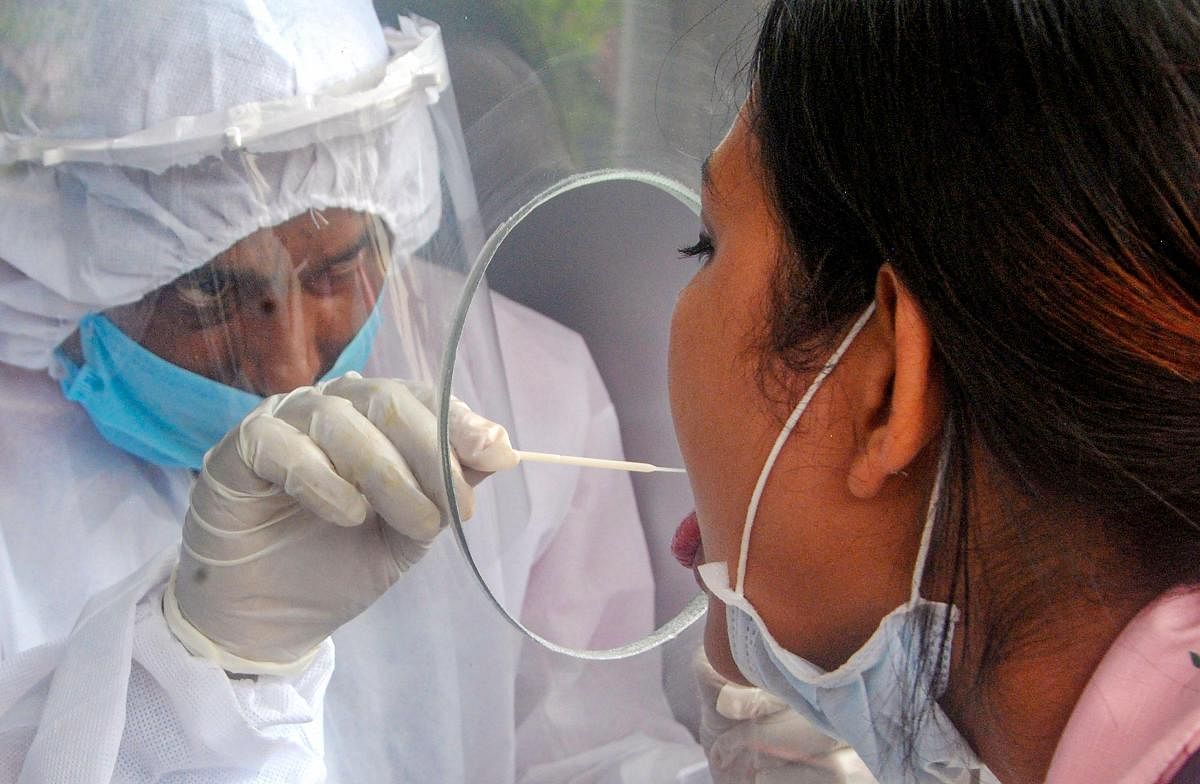
India and the four other BRICS nations on Tuesday agreed to collectively allocate $15 billion to the New Development Bank to set up a special loan instrument to help revive economies battered by the coronavirus crisis.
The five-nation bloc also threw its weight behind the World Health Organization (WHO), notwithstanding the tirade US President Donald Trump and others in his administration recently launched against the international agency accusing it of “severely mismanaging and covering up the spread” of the COVID-19 virus from China.
External Affairs Minister S Jaishankar and his counterparts from the other BRICS nations had a video-conference on Tuesday and discussed ways to step up cooperation within the bloc to contain the coronavirus pandemic as well as to revive the economies, which had been ravaged by the travel and transport curbs as well as lockdown imposed in most of the countries around the world to stop the virus from spreading.
“The current challenge underlines all the more the need for reform of multilateral systems and that reformed multilateralism was the way forward. He referred to the centrality of development and growth in the global agenda,” a press release issued by the Ministry of External Affairs in New Delhi quoted Jaishankar saying during the virtual meeting with the Foreign Ministers of the other BRICS nations.
Chinese Foreign Minister Wang Yi too called on all the BRICS nations to firmly stand by multilateralism, by the international system centred around the United Nations and by the purposes and principles of the United Nations Charter, according to the state-owned Xinhua news agency of the communist country.
The video-conference was chaired by Russian Foreign Minister Sergey Lavrov.
He later told journalists that the BRICS ministers had a “common opinion” that the WHO was a very important and unique platform, which gathered facts and had best professionals around the world, including from the US.
Lavrov said that the BRICS nations – Brazil, Russia, India, China and South Africa – had decided to allocate $ 15 billion to the New Development Bank (NDB) so that it could set up a special loan instrument not only to help meet the emergency expenses incurred for responding to the pandemic, but also to support revival of the economies.
The BRICS set up the NDB in 2015 to help support public or private projects through loans, guarantees, equity participation and other financial instruments.
“We (the BRICS nations) have decided to create a special credit instrument to finance economic recovery projects in the countries. It is expected to allocate up to $ 15 billion for this purpose,” said Lavrov. “We believe that it should become a very good reinforcement for our countries' economies when they're coming out of the crisis stage and resuming economic operations,” said the Russian Foreign Minister after holding the video-conference with his counterparts in the other BRICS nations.
The NDB Board of Governors (comprising Finance Ministers of the five nations) on April 20 had a video-conference and noted that the bank would soon set up an Emergency Assistance Facility to meet requirements of the member countries. The BRICS nations could use emergency loans from the NDB to finance direct expenses related to the fight against the coronavirus outbreak or to provide support to governmental measures contributing to economic recovery. The NDB initially agreed to keep aside $ 5 billion for providing emergency loans to the member nations. K V Kamath, president of the NDB, however, told the Board of Governors during the video-conference that it had the financial capacity to provide a total of $ 10 billion to help the member nations come out of the crisis.
“The pandemic is not only posing a great risk to the health and well-being of humanity but is also severely impacting global economy and output by disruption of global trade and supply chains,” Jaishankar said, adding: “Economic activity across sectors has been negatively impacted leading to loss of jobs and livelihoods.”
He said that the BRICS needed to provide support to businesses, especially the MSMEs (Micro, Small and Medium Enterprises), to tide over the crisis.
